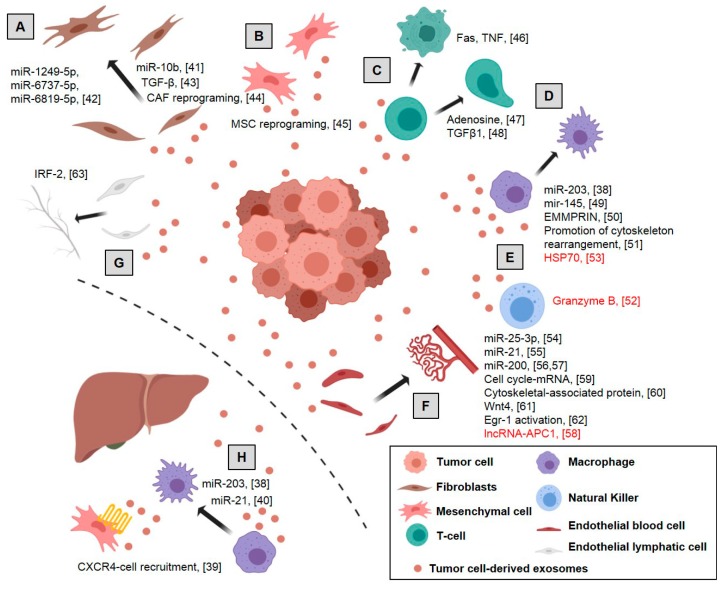Figure 1.
Role of tumor exosomes in colorectal cancer: Tumor exosomes act at different levels on the microenvironment, enhancing tumor progression and driving an inflammatory pre-metastatic niche, although in some cases an antitumor mechanism is also induced (red text): (A) induction of normal fibroblasts into Cancer-Associated Fibroblasts (CAFs), increasing the expression of myofibroblast markers and remodeling the extracellular matrix, (B) reprogramming mesenchymal stem cells to favor tumor growth and malignant progression, (C) induction of apoptosis of activated CD8+ T cells, negative regulation of T-cells and phenotypic alteration of the T cells to Treg, (D) polarization of M1 to M2 macrophages inducing a tumor-supporting phenotype in macrophages, (E) enhanced migration and reactivity of natural killer cells, (F) promotion proliferation and permeability of endothelial cells, increasing vascular permeability and angiogenesis, (G) modulation of lymphangiogenesis and (H) induction of the pre-metastatic niche by CXCR4-stromal cell recruitment, generating an immunosuppressive microenvironment. Dotted line represents separation between primary tumor and distal metastasis. References are shown in brackets [38,39,40,41,42,43,44,45,46,47,48,49,50,51,52,53,54,55,56,57,58,59,60,61,62,63]. Created with BioRender.com.

